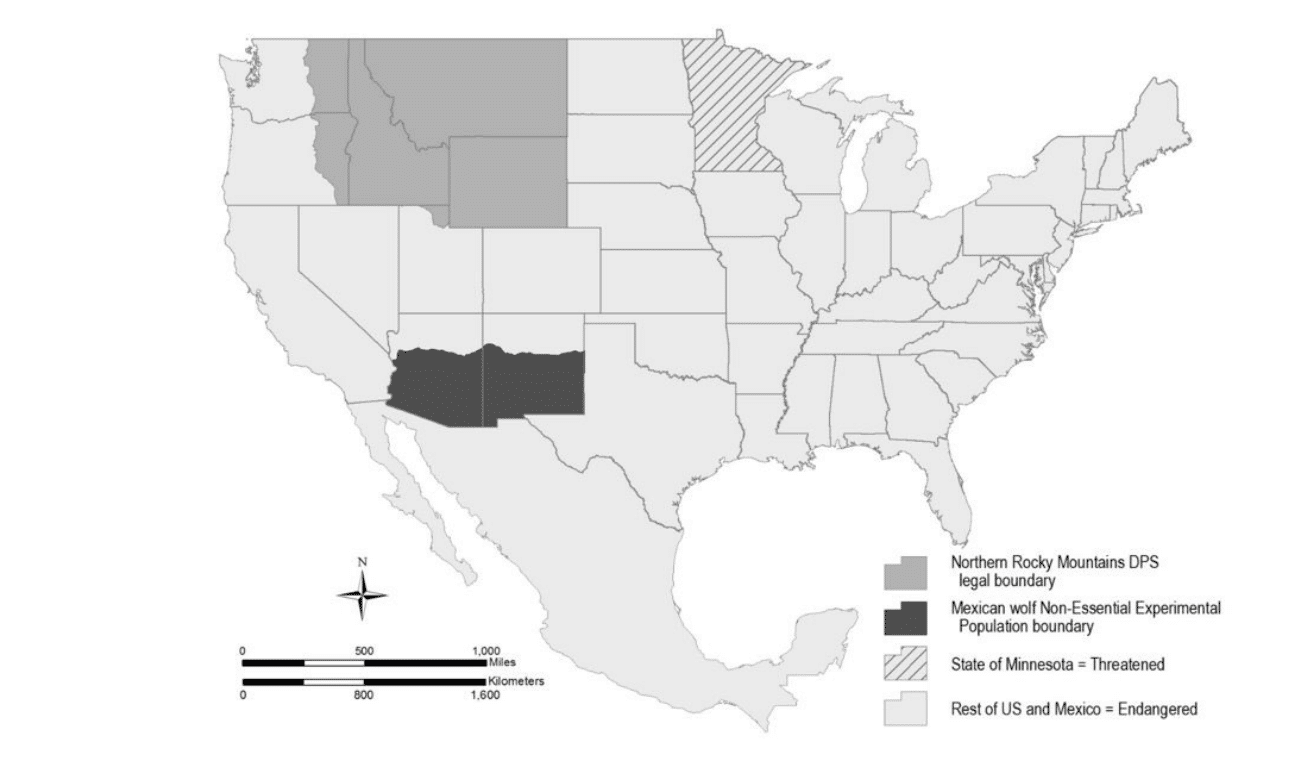JACKSON, WY — After nearly two years of promises and press releases, the Biden administration did not release the first-ever national wolf recovery plan before leaving office, passing protection plans for gray wolves to Trump 2.0.
The U.S. Fish & Wildlife Service (FWS) announced this week that it will not issue a national recovery plan for gray wolves under the Endangered Species Act. Why? Because, according to FWS, the species is “no longer appropriate” for federal protection. Translation: they’re fine, trust us.
This decision effectively cancels what the Biden administration had announced in 2024 as a landmark “coordinated recovery strategy” for wolves across the Lower 48. That plan was supposed to be delivered by December 2025, but the agency quietly declared that wolves “have already recovered” and that federal oversight is no longer necessary.
The Short Version
- February 2024: Biden’s FWS promises a first-ever national recovery plan for gray wolves.
- November 2025: That plan disappears faster than a moose on Highway 22.
- Official reasoning: “Wolves have recovered; listing is no longer appropriate.”
- Unofficial translation: “We’d rather not get sued over it.”
Why FWS Says the Wolves Are Fine
According to the Service, gray wolves have:
- Reached or exceeded recovery targets in the Northern Rockies and Great Lakes.
- Self-sustaining populations that don’t need ESA protection.
- State and tribal management plans are in place that “maintain long-term viability.”
In short: “We did it! Job done!”
But not everyone’s buying it. Conservationists argue that wolves occupy less than 20 percent of their historic range and that states like Wyoming and Montana already allow aggressive lethal control.

The Conservationists Fire Back
Groups like the Center for Biological Diversity and Defenders of Wildlife are preparing lawsuits, arguing that FWS abandoned its own mandate. They claim this decision ignores both science and court precedent, and it leaves wolves vulnerable to the same regional mismanagement that wiped them out a century ago.
Collette Adkins of the Center for Biological Diversity told reporters the move is “a stunning abdication of responsibility.” Translation: The feds punted, and the wolves drew the short straw.
Why This Matters in Jackson Hole
Here in Teton County, wolves are more than a wildlife talking point; they’re part of the ecosystem, the tourism economy, and the political identity of the modern West.
Without a national recovery plan, management authority defaults almost entirely to the states. For Wyoming, that means:
- Wyoming Game & Fish will now be the de facto wolf authority. The state’s predator zone policy (where wolves can be shot on sight) remains intact. Expect more tension between ranchers, guides, and wildlife advocates as the debate over “balance” heats up again.
AntlersArch founder and the voice behind Teton Tattle.






